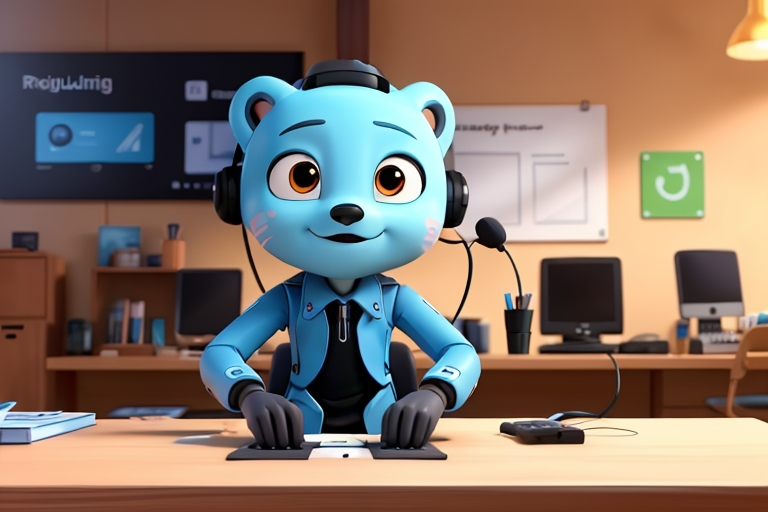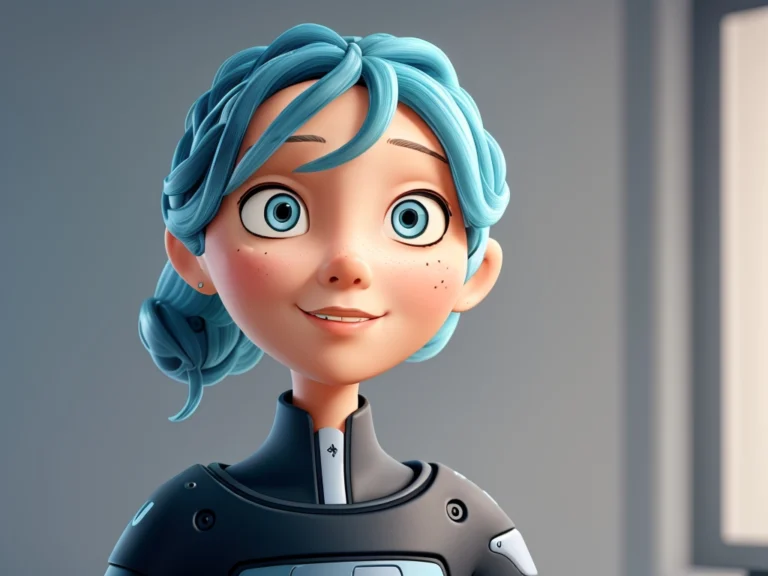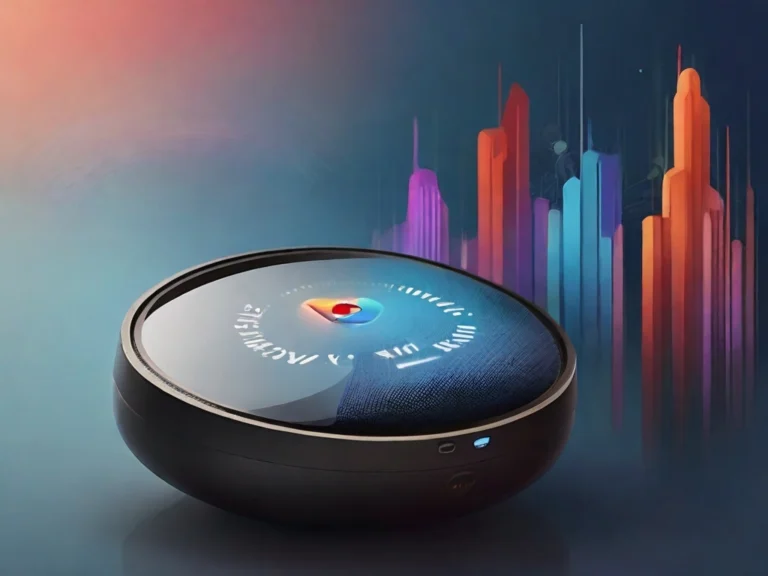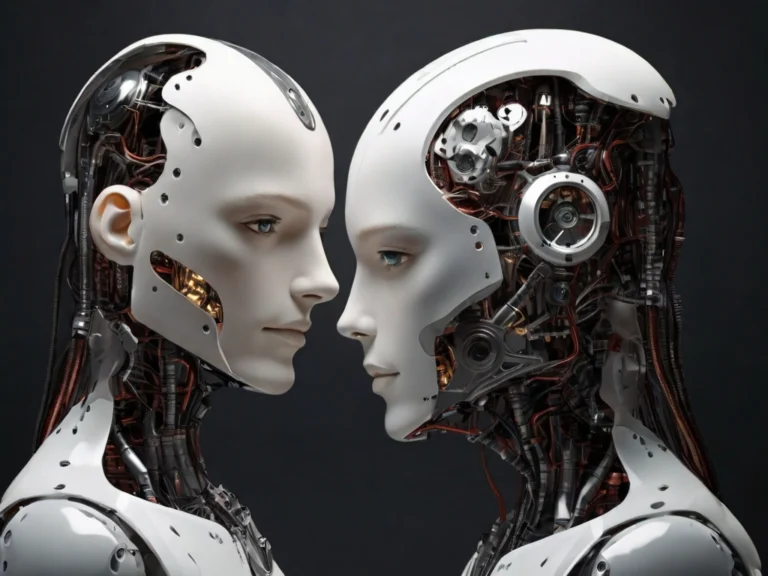
These days, content is very important. Businesses and people need to make good content to get attention and promote themselves. This content can be articles, videos, or social media posts. But making all this content takes a lot of time and money.
That’s where AI (artificial intelligence) comes in. AI can help make content faster and easier. It can do some tasks on its own and give helpful information. This lets businesses make content in a better way and keep up with others.
In this article, we’ll look at how AI is changing the way content is made. We’ll talk about what’s good and bad about using AI for this. And we’ll think about what might happen with AI in the future as it keeps getting better.
What is AI and how is it being used in content production?
AI is when computers can do things that usually only humans can do, like understanding, thinking, learning, and making choices. It’s being used a lot now to make content like articles and videos.
AI tools can help write articles or describe products. They can do this by themselves without a person helping. This saves time and lets the people making content focus on harder, more creative work.
AI can also look at lots of information and suggest good content to share. It’s like having a smart helper to pick out the best stuff.
Another way AI helps is by showing different content to different people. It can guess what someone likes based on what they’ve looked at before. Then it shows them content they’ll probably enjoy at the best time and place for them.
So in general, AI is making it faster and easier to make good content. It’s helping businesses and people get the right content to the right people in the best way.
AI-powered content creation tools: benefits and limitations
AI content creation tools are like robot writers. They use special computer programs to understand and make language. These robot writers can help make content faster and cheaper than humans can.
Some good things about AI writers are that:
- They work very quickly and don’t cost as much as human writers. This lets the humans focus on harder writing tasks.
- The writing they make has proper grammar and makes sense. So it doesn’t need as much fixing after.
- They can easily include keywords and other things that help the content show up in searches online.
But there are also some not-so-good things about AI writers:
- They aren’t as good at being creative or showing emotions in their writing. Things like poetry are still hard for them.
- The content can feel less personal and interesting because a human didn’t write it.
- They might make content that seems repetitive or not very unique. This is because they work from a limited amount of information to create the content.
So in short, AI writing tools can be very helpful for making content faster and better in some ways. But they also have some weaknesses to keep in mind. It’s important to think about both the strengths and limits when deciding to use them.
How AI is improving content distribution and audience targeting
AI is changing how content gets to people in a big way. It’s making it easier for businesses and creators to understand what their audience likes and wants. This helps them make content that is just right for each person.
AI systems are like smart detectives. They can look at tons of information, like what people do on social media, what websites they visit, and what they search for online.
By studying all this, the AI can find patterns in what people like. It can then suggest content that specific people will probably enjoy, based on their interests and habits.
AI is also really good at figuring out the best ways and times to share content. For example, it can see when people use an app the most and then share things at that time. This increases the chances that people will see and interact with the content.
Another cool thing AI can do is help make content feel more personal. It can look at what a person likes and then change the words, style, and feel of the content to match them better. This can make people enjoy and connect with the content more, and like the brand better.
Personalization and content recommendation through AI
Personalization and content recommendations using AI are two ideas that are changing how businesses and creators connect with their audiences.
AI systems can make the experience feel unique for each person. This can lead to people being more interested, loyal, and likely to buy things.
AI personalization systems are like smart helpers. They look at what a person has done, like what they’ve looked at or bought, and use that to create a special experience just for them.
For example, if someone buys running shoes, the AI might suggest other running gear or healthy food. By showing very relevant stuff, businesses have a better chance of getting people to buy again and building a good relationship with them.
AI content recommendation systems work similarly. They use information to suggest content that a specific person will probably like.
These suggestions can come through email, social media, or notifications. By giving people content they enjoy, businesses can keep them interested and make them like the brand more.
Content creators, like news sites or media companies, also use AI recommendation systems.
These help them show personalized content suggestions to their audiences. The AI looks at what people do and then recommends content they’ll likely enjoy based on their interests and habits.
AI’s impact on content marketing and SEO
AI is making a big difference in two important parts of digital marketing: content marketing and SEO.
It’s helping businesses and creators make their plans for these things work better. This leads to more people seeing their content, interacting with it, and spending money.
One big way AI helps with content marketing is by making content that’s high-quality, interesting, and relevant.
AI systems can look at a huge amount of information, like what people search for, what they do on social media, and what websites they visit.
By studying all this, the AI can see patterns in what people like. It can then use this to make content that fits what the audience wants and cares about. This makes people engage more with the content and buy things.
AI is also changing how SEO works. SEO is about making content show up high in search results. AI systems can figure out how search engines work and what people do when they search.
This helps them find the best keywords and other things to include to improve search rankings. AI can also make content work well with voice search and other new technologies. This helps more people find and visit the content.
Another way AI helps is by making it easier to share and promote content. With AI systems, businesses can suggest personalized content and figure out the best ways to share it, like through email, social media, or notifications. This increases engagement and leads to more sales.
Ethics and AI content: An ongoing debate
While AI in content creation is exciting, it also raises some ethical concerns that are sparking debate:
- Impact on jobs: Could advanced AI replace human content creators, putting them out of work? Or will it actually make their jobs easier and open up new roles?
- Data privacy: AI needs to analyze a lot of personal data to work its magic. But are there enough protections in place to keep all that info secure and used appropriately? It’s a real worry.
- Content quality: AI can churn out a huge volume of content quickly. However, some fear this focus on speed over substance will lead to a drop in quality and originality compared to content made by humans.
These are complex issues that will need ongoing discussion as AI gets smarter and more widely used. We’ll have to stay on top of the ethics so AI content helps more than it hurts.
The road ahead for AI and content
Looking to the future, AI in content production brings both exciting possibilities and challenges to tackle.
On the exciting side, AI could enable extremely personalized content perfectly targeted to each individual. It can automate tedious tasks like keyword research, freeing up creators to focus on big ideas.
But there will be obstacles, like the ethical issues mentioned before. We’ll also need to make sure AI-generated content is reliable and not spreading misinformation. And the AI systems themselves will require constant fine-tuning.
Perhaps the biggest challenge will be figuring out the right balance between AI and human touch. To get the best content, there has to be a harmony between the lightning speed and data power of AI and the creativity and empathy only humans can bring.
Real-world examples
Theory is great, but what does AI content look like in practice? Plenty of companies are already using it successfully:
- The Washington Post’s “Heliograf” AI churns out quick articles on sports and elections.
- Netflix’s algorithms recommend new shows you’ll love based on your viewing history.
- Tools like Grammarly use AI to help millions of people write better.
These examples show AI content isn’t just an abstract concept – it’s here now and getting results for businesses big and small. Expect a lot more of it in the near future.






One Comment